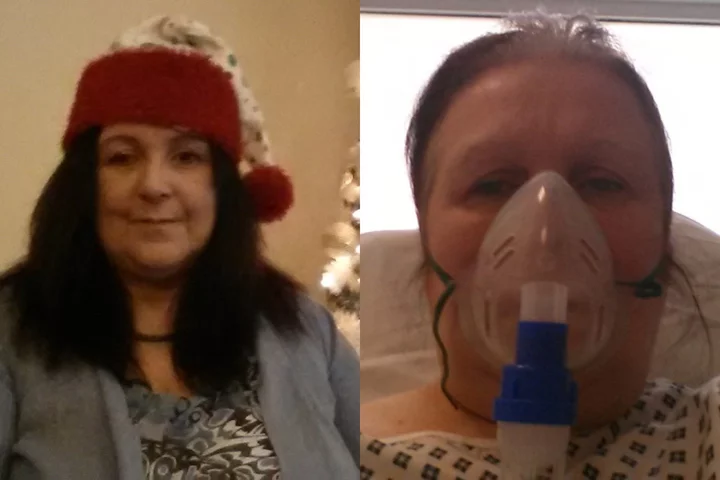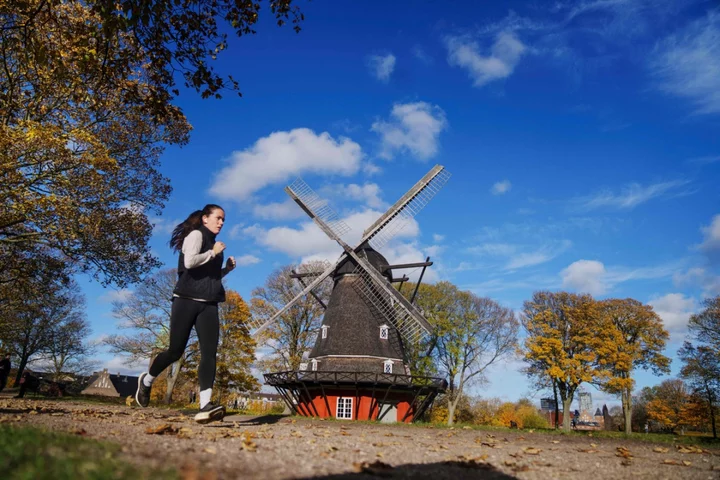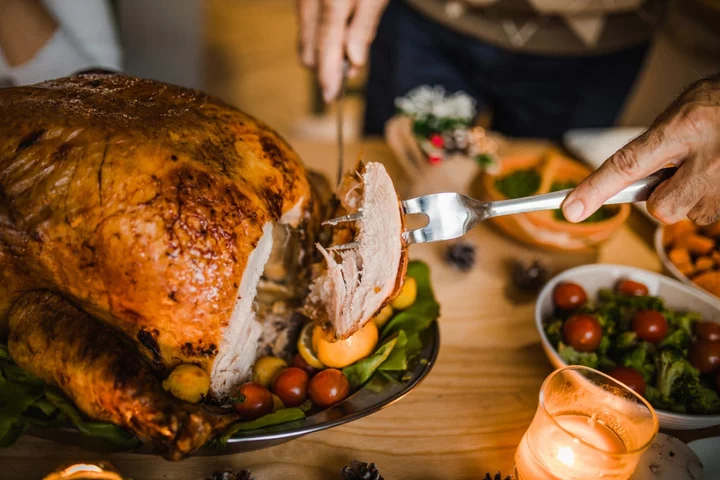
Revealed: Scandal of healthy mental health patients trapped in hospitals for years
Mental health patients have been left languishing in hospitals for years due to a chronic shortage in community care, as the number of people trapped on wards hits a record high, The Independent can reveal. Analysis shows 3,213 patients were stuck on units for more than three months last year, including 325 children kept in adult units. Of those a “deeply concerning” number have been deemed well enough to leave but have nowhere to go. One of these cases was Ben Craig, 34, who says he was left “scarred” after being stranded on a ward for two years – despite being fit enough to leave – because two councils fought over who should pay for his supported housing. He missed his daughter's birth and didn’t meet her until she was two months old while waiting to be discharged, which only exacerbated his depression. He told The Independent: “I was promised I was going to be moving on, but it just seemed like it went on forever.” The average stay for patients in low-security hospitals was 833 days in 2022-23. The NHS does not collect data on how long people are waiting to be discharged, but mental health charity Mind said Mr Craig’s case was far from unique. Leaked reports, obtained by The Independent, also reveal NHS community services are struggling to see patients, while the NHS is spending hundreds of thousands of pounds a year to house those who could be discharged. Documents for 2022-23 obtained and analysed by The Independent reveal: Adult mental health beds cost the NHS between £500 and £1,000 a day, compared to £5,000 per patient per year for community care One in five referrals for community care was rejected as the NHS battles a 12 per cent staff vacancy rate Patients waited 13 weeks on average to see a community mental health worker, but some waited up to 60 weeks The 3,213 patients stuck for more than three months was an increase of 639 on the year before and an all-time high, according to an analysis of NHS data In August, 10 per cent of patients were waiting 221 days to start community treatment One in 10 patients under a community mental health team did not see a healthcare worker for a year Saffron Cordery, deputy chief executive for NHS Providers, which represents hospitals, told The Independent mental health patients stuck in hospitals were experiencing “personal distress” and getting ill again while they wait. She called on the government to put mental health on an “equal foot” to physical care and said not doing so suggested the government was content not to treat all patients equally. One senior NHS source said long stays in mental health units had become “normalised” and patients were becoming institutionalised. “These 60 and 90 [days] stayers are just being medicated and drifting. They’re adjusting meds to stabilise the person ... These long-stays people can get completely dependent, they lose contact with the world [and] their life, They’re terrible for people,” they said. ‘Robbed’ Mr Craig was admitted to Prestwich Hospital in September 2019 with psychosis from prison after his mental health deteriorated and he began hearing voices. In 2020 he was told by doctors he was well enough to be discharged home after his sentence ended. However, he then had two years of his life “robbed” as two councils rowed over who should fund the mental health hostel he needed to be discharged into to support his recovery. He was eventually discharged into supported living in September 2022 where he still receives mental health support. Mr Craig, who now lives in Manchester, told The Independent: “I was very depressed, I am still not over it properly yet. When I was there, I just didn’t want to go out or anything, so just stayed in my bed all the time. “I missed my daughter’s birth, and I didn’t see her until she was two months old ... it’s left me scarred.” Even when he was finally discharged into supported living accommodation he says the community mental health team had “no input” into his care and says he was still struggling to get in contact with his community service team. Rheian Davies, head of Mind’s legal unit, told The Independent that cases like Mr Craig’s showed councils were failing in their legal duty to fund mental health support in the community. She said the charity had seen patients with longer discharge delays than Mr Craig’s due to this problem. “It’s deeply concerning that people are finding themselves stuck in hospital, their lives on hold, due to a lack of supported housing,” she said. “Delays in leaving hospital cause uncertainty and anxiety that can hamper or even reverse recovery. “This takes a huge emotional toll on the person and their loved ones, but the delay in discharge also means there are fewer beds available for people experiencing mental health crises.” She added that patients “deserve much better than being held indefinitely in hospital settings when they are well enough to return to the community”. Ms Davies said: “This case [Mr Craig’s] is a real opportunity to reduce the delays and hurdles caused by a disjointed system.” Greater Manchester University Hospital said: “We work hard with all our system partners to ensure where patients are ready for discharge, they can do so as quickly as it is safe to do so.” Abena Oppong-Asare, Labour’s shadow mental health minister, said The Independent’s exposé showed NHS mental health services were “in crisis”. She added: “The Independent investigation reveals the appalling reality that patients are being left in hospital for months, when community care can be far more effective and less expensive for the NHS.” As part of its election manifesto pledges, Labour has promised to recruit 8,500 more mental health professionals, paid for through plans to abolish “tax loopholes for private equity fund managers and tax breaks for private schools”. The Department of Health and Social Care said in 2021-22 an additional £116m was invested in the NHS for mental health discharges and that it will have invested £1bn more in the sector by March 2024. An NHS England spokesperson said: “There is no doubt mental health services are under significant pressure, with the NHS treating record numbers of young people and community crisis services seeing a 30 per cent increase in referrals compared to before the pandemic, and NHS urgent and emergency care also treating record numbers.” Read More Friends target rowing world record to raise awareness of mental health challenge Women in mental health crisis being jailed in prisons deemed ‘unfit for purpose’ Suspect in fatal Hawaii nurse stabbing pleaded guilty last year to assaulting mental health worker The Priory hospital fined £140k after woman dies on ‘utter shambles’ ward Dumped in A&E and left untreated for 5 days: Shameful plight of vulnerable patients Anger over Tory minister’s ‘disgraceful’ Scotland heroin jibe
2023-11-26 03:24

Pope cancels Saturday activities because of mild flu - Vatican
VATICAN CITY (Reuters) -Pope Francis cancelled his morning audiences on Saturday because of mild flu, the Vatican said in a
2023-11-25 18:21

‘Smelling a mince pie could kill me’ says woman allergic to Christmas scents
A woman so allergic to the scent of Christmas that even “smelling a mince pie could kill [her]” almost died after a festive trip to a garden centre sparked an asthma attack. Anne Murray, 61, an engineer who lives alone in Lanark, Scotland, was diagnosed with severe asthma as a baby and has been allergic to traditional festive staples such as citrus and cinnamon since she was a child. According to the NHS, severe asthma means the condition is uncontrolled even when sufferers are taking their medication. When they are exposed to an allergen that irritates the airways, it can trigger asthma symptoms. Murray realised the seriousness of her condition at the age of 11 when her mother, Mary, collapsed and died from an asthma attack at the age of 34. Seven years later, Murray’s childhood best friend, Julia, also died from an asthma attack. Both deaths made her “live life to the full” and she has since done a bungee jump and travelled the globe. Murray had a near-death experience herself in November 2016 when she smelt “pine cones impregnated with citrus” in a garden centre. “I had difficulty breathing,” she recalled. “I grabbed my inhaler and ran quickly out of the garden centre.” On the drive home, her condition worsened. “It felt like someone was sitting on my chest.” Once home, she used her nebuliser – a device that enables her to breathe by giving her medicine as a mist – but could not get to sleep that night as she kept coughing, and whenever she laid down, it felt like she was “choking”. Two days later, and still struggling to breathe, she visited her GP and was barely able to stand up. An ambulance was called straight away, and Murray was given oxygen and strong nebulisers, before returning home with seven days’ worth of steroids. “They all told me it was a close call so it was lucky I had my nebuliser on me.” Since that incident, Murray has finished her Christmas shopping by September to avoid being near festive smells in shopping centres, and often turns down invites to Christmas parties. “It can be quite isolating,” she says. “If friends want to go out around Christmas, I have to ask them to go to different places where I know are safe. I can’t eat or be anywhere near things that smell like Christmas, or eat anything Christmassy like mince pies and stollen cake – I don’t touch them with a 10-foot barge pole. Just smelling a mince pie could kill me. So many things have Christmassy spices that you wouldn’t normally think of, too.” Following the dual losses of her mother and best friend, Murray learnt that she would have to make day-to-day adjustments to her life in order to maintain her own safety. When travelling, she often has to call the airline in advance to request that passengers only eat or peel oranges once they get off the plane. She also has to inform all her work colleagues not to wear festive perfume in the office. “I wish shops would put up signs saying they have festive scents in store,” she adds. “It would be so helpful for me, and stop them getting complaints too.” Today, she makes sure to keep her own Christmas planning low-key. “I don’t go anywhere near supermarkets and that sort of thing – it’s not worth the risk,” she says. “It can be embarrassing a lot of the time – if I go to a restaurant and tell them about my allergies, I get turned away and we have to find somewhere else to go. Or, I get loads of staff around me and I just don’t want the attention.” This year, Murray is looking forward to spending Christmas Day alone and visiting her dad, Archie, and stepmum, Alice, in Scotland. She says: “I still like Christmas, and I’m excited to be on my own this year – I can put my feet up and watch the telly, and eat whatever I want.”
2023-11-24 18:49

Thailand Turns to Chinese Influencers to Allay Tourist Concerns
Thailand plans to tap Chinese social-media influencers and companies like Huawei Technologies Co. and Alipay to promote the
2023-11-24 16:46

UK study finds this lifestyle change can add whole decade to life
Shifting to a healthier diet – and sticking to it – can add almost a decade to life for middle-aged people, a new study finds. The research published earlier this week in the journal Nature Food, assessed the health data of nearly half a million British residents whose eating habits have been documented as part of the UK biobank study. Researchers grouped 467,354 participants based on their eating habits and observed how these changed over time. Participants were grouped as either average and unhealthy eaters, or as people with food intake matching the UK’s Eatwell Guide and those whose diet matched what the researchers called the “longevity diet”. Currently, the UK population has a life expectancy at birth of about 84 years for women and 80 years for men. Adjusting for other contributing factors like smoking, alcohol, and physical activity, the study found that 40-year-old men and women who changed from an unhealthy diet to eating healthier food, and adhered to it, gained almost 9 to 10 years in life expectancy. “Here, using a prospective population-based cohort data from the UK Biobank, we show that sustained dietary change from unhealthy dietary patterns to the Eatwell Guide dietary recommendations is associated with 8.9 and 8.6 years gain in life expectancy for 40-year-old males and females, respectively,” scientists, including those from the University of Bergen in Norway, wrote. “In the same population, sustained dietary change from unhealthy to longevity-associated dietary patterns is associated with 10.8 and 10.4 years gain in life expectancy in males and females, respectively,” they added. Researchers say the longest gains in life expectancy were made by those changing their diets to consume more whole grains, nuts and fruits and less sugar-sweetened beverages and processed meats. Those who initially followed an average diet and later changed to healthier eating habits were found to have smaller life expectancy gains. “The bigger the changes made towards healthier dietary patterns, the larger the expected gains in life expectancy are,” researchers explained. The life expectancy gains also seemed to be lower when the diet change was initiated at older ages, but even these are substantial, scientists say. For instance, they say, even 70-year-olds can manage to extend their life expectancy by 4 or 5 years if they make a sustained diet change. The latest findings point to government actions that could contribute to people’s health improvements in the UK, such as health-oriented food taxes, improving food environments in school and working places, as well as subsidies to reduce the cost of healthy foods. “Such policy measures, informed by the up-to-date estimates on potential gains in life expectancy that we provide in this paper, could guide the deployment of resources to improve healthy eating patterns across the population,” researchers added. Read More Smoking causes 150 cancer cases every single day in UK, study finds Binman shoots first Hollywood film after chat with Mark Wahlberg changed his life ‘I could have gone blind if I hadn’t been able to go private’ ‘I could have gone blind if I hadn’t been able to go private’ Paul Rudd says ‘horrible’ Marvel diet left him drinking sparkling water as ‘reward’ How to celebrate Thanksgiving when you’re not close to your family
2023-11-24 12:22

Taylor Swift Concert Tragedy Highlights Dangers of Climate Change
The death of a Taylor Swift fan in the midst of a heat wave in Brazil is another
2023-11-24 01:51

OPEC+ Says Delayed Meeting Will Be Held Online
The OPEC+ meeting that was pushed back by several days to Nov. 30 will now be held online,
2023-11-23 22:54

Thanksgiving Adds 46 Million Turkeys to Truckers’ Chilled Cargo
If you think delivering the perfect Thanksgiving turkey from brine bucket to dinner plate takes precision, you should
2023-11-23 20:54

WHO Asks China for More Information on Child Pneumonia Outbreak
The World Health Organization asked China for detailed information about a surge in respiratory illnesses in children, including
2023-11-23 11:18

OPEC+ Struggle Over African Quotas Forces a Delay to Meeting
Saudi Arabia and its oil allies are once again struggling with a dispute over output quotas for African
2023-11-23 10:15

How to celebrate Thanksgiving when you’re not close to your family
Thanksgiving is only a day away and most Americans have solidified their family plans for the holiday. Whether you’re hosting the big meal or heading to a relative’s house, the holidays are often a chance to reconnect with loved ones. However, Thanksgiving Day isn’t always a family-oriented occasion. Over the years, several studies have found that the seemingly joyous holiday season isn’t always easy for everyone. In a survey conducted by the AARP Foundation in 2017, 31 per cent of respondents said they felt lonely during the holidays throughout the last five years. Meanwhile, 41 per cent of participants were concerned about a family member or friend feeling lonely around the holidays. In 2020, a survey conducted by ValuePenguin also found that 70 per cent of respondents struggled with different types of loneliness before Thanksgiving and Christmas, partly due to the effects of the Covid-19 pandemic. While socially-distanced holiday parties have mostly become a thing of the past since then, there’s still many reasons why some people spend the season by themselves. Some Americans have family members living on the opposite side of the country, or world, while others may not have a close relationship with their relatives at all. There’s no one concrete way to spend the holidays, and everyone has their own reasons why they choose not to see certain people on Thanksgiving. Speaking to The Independent, Emma Mahony, a therapist at Better Life Therapy based in Pennsylvania, acknowledged that, when we spend the holidays alone, our feelings of loneliness can be heightened. While everyone experiences loneliness in a different way, Mahony believes that the feeling could be tied to how Thanksgiving has been portrayed over the years. “I think a lot of the anxieties and concerns that come up have to do with unmet expectations of what you think a holiday is supposed to look like, and what you think your relationship with your family or your friends is supposed to look like,” she said. “I think that’s where a lot of people themselves feel a little bit of a stressful state. Just maybe feeling a little let down by the expectations they have for themselves, after watching other people experience the holidays differently than them.” The holidays are often referred to as the most wonderful time of the year, but that doesn’t ring true for everyone. In some cases, the winter months can be quite a triggering time, and potentially a reminder to people of how they’ve been hurt by those closest to them. According to Mahony, the best way to manage those feelings of animosity is by creating your own perspective about the holidays and new ways to celebrate. “I think you should allow yourself to reframe it as: ‘Okay, how do I want the holidays to look for me? Who are the people that I do want in my life? Who are the people that I don’t want in my life?’” she advised. “Don’t try to make something that shouldn’t happen happen. Instead, recreate your own memories and your own traditions, and give yourself space and permission to do so. But also, if you know that it’s going to be a hard time for you, create that support system, from reaching out to a therapist or to a close friend.” For those who do have a close support system, it can make skipping out on Thanksgiving dinner a little easier. On the other hand, your cousins may miss sitting next to you at the dinner table. Still, Mahony believes we shouldn’t try to convince our family members to attend an event in which they’ve already opted out. “If someone decides they don’t want to be with you over the holidays, respect that choice for them,” she explained. “Don’t make them feel bad for prioritising themselves and their needs. [It] will potentially, you know, make things worse long term. I just honour that everyone needs to do what’s best for them, whether that be financially, emotionally, or physically.” Even if you decide to celebrate Thanksgiving this year without your family, it doesn’t mean that you’re entirely on your own. Mahony suggested setting up a Zoom call or FaceTime with some friends, or planning a fun meal if you’re worried about eating solo. “You could really do whatever you want, so I would set up things for yourself to look forward to,” she said. For those who are spending the holiday alone, but still want to take part in Thanksgiving-related activities, spend the morning or afternoon at a local homeless centre. You can continue the day by hosting a Friendsgiving dinner or movie night with your pals who are still in town. When it comes to food, you can cook a mini turkey for one or ditch Thanksgiving dinner altogether and order take-out at a local restaurant. Then, close out the night with some early Black Friday shopping online or in person. Although this Thursday is indeed a federal holiday, who says the day can’t feel like any other? Ultimately, how you spend Thanksgiving is entirely up to you and there’s no right or wrong way to celebrate the holidays. Remember that you shouldn’t be too hard on yourself for avoiding family during the holiday season. “If Thanksgiving looks different for you year after year, that’s okay. There’s not a specific way to spend the holidays and no family looks the same,” Mahoney said. “If you’re coming to terms with the fact that being with your family for the holidays isn’t what’s best for you, give yourself a little bit of compassion there. “It will get easier over the years, as you figure out how to take care of yourself better.”
2023-11-23 05:52

Far-right populist Wilders books major victory in Dutch election-exit poll
By Bart H. Meijer and Anthony Deutsch AMSTERDAM (Reuters) -Dutch anti-EU far-right populist Geert Wilders, who has vowed to halt
2023-11-23 05:28
